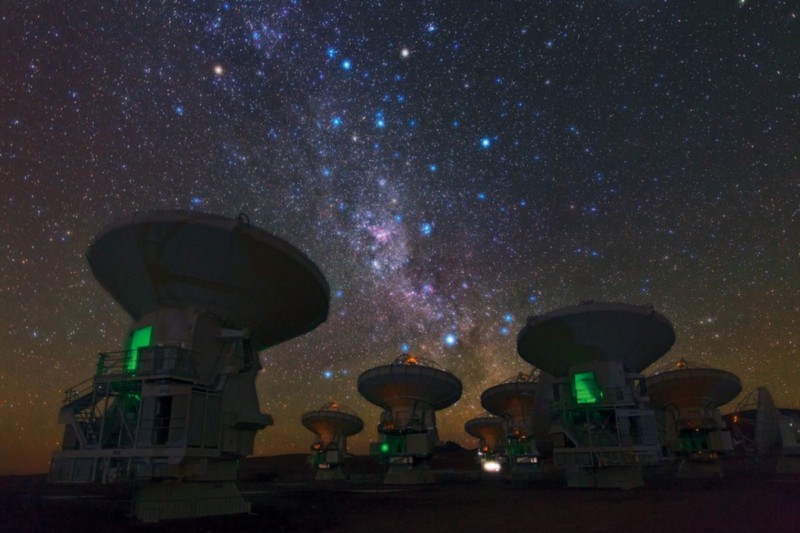Who Doesn’t Want to Live Forever? The Cult of Singularity

While the Fountain of Youth is generally ascribed to the conquistador Juan Ponce de León — located in Florida, perhaps, or the Bahamas, or the Yucatan — the legend itself is far older. The seeking of eternal youth is as old as literature itself: Herodotus wrote of it; Gilgamesh nearly had it until his fateful nap.
Truth is, searching for the ability to live forever is probably much older than our texts reveal. Human beings have long struggled with this mortal coil we’ve all been wrapped within. The desire to transcend the flesh — so prominent in early yoga texts; so evident in biblical lifespans — has been with us for thousands of years.
And for thousands of years wizards, sadhus, and alchemists have all claimed such an inheritance. Our flesh is merely an engineering problem. Once the correct chemistry is understood, the key to unlocking a perpetual existence will be at hand.
That key used to be pranayama, intense breathing exercises, as well as the transmutation of lead into gold. Today our understanding is more nuanced — it could be resveratrol, the “good stuff” in red wine, or some other concoction of nutrients in pill form. Anyone for a frosty mug of soylent?
Perhaps the biggest change over the millennia is the understanding of “what” is perpetuating itself. In prior times it was a soul that needed to transcend this “meat body” that our true selves carried around. Today, however, it’s all about transferring consciousness into a machine.
Don’t take my word for it: In The Singularity is Near, Ray Kurzweil writes,
In fact these future machines will be even more humanlike than humans today. If that seems like a paradoxical statement, consider that much of human thought is petty and derivative … Our future primarily nonbiological selves will be vastly more intelligent and so will exhibit these finer qualities of human thought to a far greater degree.
If this all sounds like a new take on theology, that’s because it is. As Kurzweil states in the book, “We need a new religion.” He goes on to describe a “silicon intelligence” that will occur once we “transcend biological intelligence.” This is the new and complete God, a “sublimely intelligent” entity that will wake up after we humans have “saturated the matter and energy in the universe with intelligence.”
Last week Kurzweil revealed his somewhat normal breakfast habits — well, as normal as smoked mackerel, dark chocolate, and soy milk might be — before admitting that his intake before a hundred or so pills, totaling a few thousands of dollars a day in supplements. At 67, he prefers to state his biological age being in the “late 40s.”
Like singularity, futurism is a borrowed term: An early 20th century Italian artistic movement by the same name emphasized speed, technology, youth, and violence. Only violence is mostly brushed aside in the race to the singularity, the moment when artificial intelligence becomes more intelligent than that offered by simple biology. As Kurzweil writes,
Our merger with technology has aspects of a slippery slope, but one that slides up toward greater promise, not down into Nietzsche’s abyss. Some observers refer to this merger as creating a new “species.” But the whole idea of a species is a biological concept, and what we are doing is transcending biology … We are upending biological evolution altogether.
Joel Kramer and Diana Alstad have been studying the dangers of gurus and cults for decades. In order for a person to be considered a wise agent revealing a special message for humanity, they must convince people to distrust themselves and their surroundings. As they write in The Guru Papers: Masks of Authoritarian Power,
If one’s viewpoint is mainly historical, optimism is difficult to muster, because history has not shown the human species capable of intelligently handling the power and problems created by its technological cleverness.
The fateful moment of singularity calms that fear with its promise of a more intelligent, and therefore more peaceful future. All of this petty biology so far has not served anyone in the truest, highest sense.
Linking religious ideology with science is nothing new. If you’re hoping to create a new religion, you actually need a bit of it: Christian Science, which ironically is science in name alone, considering that prayer not medicine heals you; Scientology, again, in name only, as the auditing leads to one of the most insane science-fiction disasters ever dreamed up. Some even call the most neurotic of this lot “creation science.”
Futurists, however, firmly root themselves in the sciences in hopes of transcending them. The very thought of using science to overcome science has a foundation in our neural structure, something the Buddhists knew long ago: when contemplating the self, the brain is studying itself.
What is not being studied, however, is the world outside of Silicon Valley. We might laugh at the HBO sitcom or awkwardly gaze at the ingredients in soylent, but something about this entire endeavor feels in-group. Besides being available to only an elite few, the notion of spending thousands a day to stay forever young sounds more like a fear of death than a promise of taking a dip in that ever-elusive fountain.
Sure, all technologies come down in price over time. But what in our culture today could possibly hint at an even playing field void of financial concern? It is estimated that up to $5 billion could be spent on the 2016 presidential campaign, while it leaked that Spotify is lawyering up to try to pay lower royalty rates. Nearly half the world’s population lives on under $2.50 a day. Any utopia has to address that first, not robots.
Humanity, and by extension our technologies, is accelerating rapidly — Kurzweil and legions of futurists are correct about that. Little will stop this trend, save environmental catastrophe. But trying to sell an idea like immortality is probably as old as language itself. Like all heads at Google, Kurzweil is selling an ideology, one that will eventually be capitalized upon by whoever holds the patent. The desire to transcend biology and the fear of losing it are two sides of the same coin — a coin that will land regardless of how many times he tries to flip it.
Image: agsandrew / shutterstock.com





